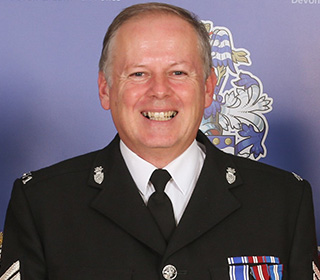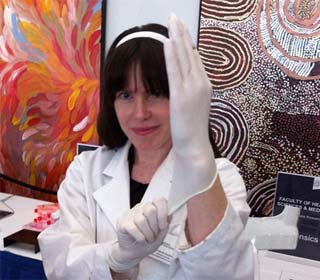BSc (Hons) Forensic Investigation
Our new Forensic Investigation degree will help you learn the investigative skills required to effectively use forensics, and other skills such as interviewing suspects and witnesses, to detect crime.


Experience hands-on forensic investigation in a dedicated "crime scene house"

Apply now for this course
A levels CCC-BBC
BTEC Level 3 National Extended Diploma - MMM - DMM
Access to HE Diplomas accepted with credits in line with UCAS tariff point range
T Level - Pass (C and above) - M
GCSE English language, Mathematics and Science at Grade C or Level 4
Course Summary
This course goes beyond the forensic investigations shown on TV to equip you with the skills and knowledge you’ll need to thrive in the real world of investigative science. Dive deep into the practical aspects of crime scene investigation, witness the impact of your work on the wider system, and gain the critical thinking tools you need to advance the field itself.
Our programme, led by experienced professionals, will immerse you in authentic scenarios using our fully equipped crime scene house. You’ll learn the latest practices, policies, and procedures used by experts in the field, and build your network and gain valuable insights through our partnerships with Devon and Cornwall Police, South West Forensics, and Plymouth Magistrates Court.
The diverse modules on this course mean you’ll gain marketable expertise beyond forensics, as you study how to give courtroom testimony, police interviewing techniques, photography, lab protocols, and research, building an impressive portfolio of skills to take with you to potential employers once your degree is complete. In particular our digital forensics module will teach you in-demand skills in a rapidly growing field.
Why study forensic investigation at Marjon?
Learn from experienced lecturers with extensive industry experience
Heavy focus on practical sessions
Small class sizes to maximise hands-on learning
Modules for this course
1st Year
Introduction to Crime Scene Investigation
Anatomy & Physiology
Forensic Trace
Forensic Science
Impression Evidence
Criminal Law
2nd Year
Forensic Anthropology
Forensic Biology
Crime Scene Photography
Digital Forensics
Outdoor Investigations
Research Methods
3rd Year
Specialized Forensics
Case Assessment and Interpretation
Practical Policing Investigation
Mass Disaster Victim Identification
Honours Project
This course is perfect if you're curious about...
How does the real world of criminal and forensic investigation compare to crime dramas on television?
What is ‘evidence’ and what can it really tell us?
How do the police get information out of people who have something to hide?
How important are digital devices in today’s investigative world?
What is a crime scene really like?
How do you differentiate between different fingerprints and DNA samples?
How you’ll be taught and assessed?
How will you be taught?
Teaching will combine lectures and seminars with weekly practical sessions in the Crime Scene House, laboratory or other simulated crime scenes.
How will you be assessed?
Assessment methods vary from module to module, so there will be some written assessments, but most will have a practical assessment to verify that the required skills have been learned.

David Moore has just retired after 28 years in the police. He has a practical ‘hands on’ experience having attended many crime scenes and also has been involved in teaching and assessing police officers on the street. He has been involved in reviewing evidence and prosecuting cases. This course is linked to the real world of forensic and criminal investigation.
Lecturers

Following the completion of my PhD in Organic Chemistry I worked for West Mercia Police in their fingerprint laboratory. From there I moved to the Home Office and conducted research into fingerprint enhancement techniques. I then changed direction and joined the Forensic Science Service and trained as a Forensic Biologist, running cases in the Violent and Sexually Motivated Crime teams. I have been an academic since 2008, starting at Kingston University in London, moving to Bond University in Australia and I have been at Marjon since 2019.

Hebe is a lecturer, dissertation supervisor & personal development tutor for BSc (Hons) Forensic Investigation. They lead a variety of modules across the programme, primarily in biological facets of Forensics. Their specialism is in the recovery and identification of human remains in both modern and historical populations, with experience working with human skeletal remains, and at archaeological dig sites both in the UK and abroad.
Fees and funding
Fees UK students: £9,790 per annum
This fee covers your tuition and access to course-specific equipment and facilities, as well associated services including access to the library, study skills support, IT support, student support and wellbeing services and membership of the Student Union. There may be additional costs by course.
Funding available for this course
Our Student Funding Advisors offer confidential and impartial advice about your funding options.
Learn more


